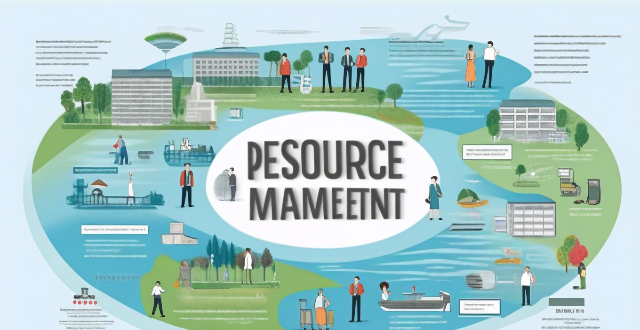Work Legal

What are the legal requirements for providing PPE to employees ?
Personal Protective Equipment (PPE) is essential in ensuring the safety and health of employees in various industries. Employers have a legal obligation to provide their employees with appropriate PPE, which must comply with specific regulations and standards set by organizations such as OSHA, the EU, Safe Work Australia, and CSA. Employers must conduct a hazard assessment, select appropriate PPE, ensure proper fit and comfort, provide training and education, and establish a system for maintaining and replacing PPE. By fulfilling these legal requirements, employers can help protect their employees from workplace hazards and promote a safe working environment.

What are the legal implications of using smart contracts ?
Smart contracts, self-executing contracts with terms written in code on a blockchain, raise legal questions about enforceability, jurisdiction, privacy, security, and regulatory compliance. Best practices include consulting a legal expert, clearly defining terms, considering jurisdiction, and prioritizing privacy and security.

Can women serve on juries and hold positions of power within the legal system ?
The role of women in the legal system has evolved significantly over time. Women are now allowed and encouraged to serve on juries, bringing diversity of perspectives, increased trustworthiness, and improved decision-making. However, women still face challenges in achieving parity with men in holding positions of power within the legal system. Efforts such as affirmative action programs, mentorship programs, and flexible work arrangements have been implemented to address these issues.

How do women entrepreneurs navigate the legal aspects of starting a business ?
Starting a business as a female entrepreneur involves navigating various legal considerations. This guide offers strategies for handling these aspects, including understanding legal frameworks, protecting intellectual property through trademarks and copyrights, drafting contracts, complying with employment laws, ensuring financial compliance, and managing risks with insurance. By addressing these components systematically, women entrepreneurs can establish a solid foundation for their businesses while minimizing legal risks and ensuring smooth operations.

What are the legal rights of women in the workplace ?
This text discusses the legal rights of women in the workplace. It outlines five key areas: equal pay, anti-discrimination, pregnancy leave, harassment and bullying, and parental leave. The text explains that women have the right to receive equal pay for equal work, be protected from discrimination in hiring, promotion, and termination, take pregnancy and parental leave without losing their job or facing negative consequences, and work in an environment free from sexual harassment, bullying, and other forms of gender-based misconduct. The text concludes by emphasizing the importance of these rights in ensuring that women can work in a safe and supportive environment where they are treated fairly and with respect.

Are there any legal requirements for installing a home security system ?
Home security systems are becoming increasingly popular as homeowners seek to protect their property and loved ones from potential threats. However, before installing a home security system, it is important to understand the legal requirements that may apply in your area. In this article, we will explore some of the key legal considerations when installing a home security system. Local ordinances and regulations, privacy laws, insurance requirements, and maintenance and upkeep are all important factors to consider when installing a home security system. By understanding these legal considerations, you can make informed decisions about protecting your property and loved ones while staying within the bounds of the law.

What are the legal requirements for health and safety training on a construction site ?
Legal Requirements for Health and Safety Training on a Construction Site: - Regulatory Bodies: OSHA, EPA, DOL - Types of Training: HAZWOPER, Confined Space Entry, Fall Protection, Electrical Safety, Scaffold Safety - Frequency of Training: Annual refresher courses, on-site training sessions before starting work, regular toolbox talks during work hours - Best Practices: Implementing a safety culture, providing adequate equipment and facilities, conducting regular safety meetings.

Are there any legal requirements for installing a burglar alarm system ?
Legal Requirements for Installing a Burglar Alarm System Security is an essential aspect of modern life, and installing a burglar alarm system can significantly enhance the safety of homes and businesses. However, there are legal requirements that must be met before installing such systems. This article discusses the legal requirements for installing a burglar alarm system, including obtaining permits and licenses, checking insurance requirements, and adhering to local regulations and ordinances. By complying with these requirements, you can ensure that your burglar alarm system provides effective security while meeting all legal obligations.

What are the legal aspects to consider in credit management ?
Credit management involves various legal considerations, including contract law, consumer protection laws, privacy laws, bankruptcy laws, state and federal laws, and collections practices. Businesses must ensure that their contracts are legally binding, disclose all relevant information about their credit products, protect customer data, understand bankruptcy laws, comply with usury laws and licensing requirements, and adhere to the Fair Debt Collection Practices Act. By considering these legal factors, businesses can maintain strong relationships with their customers while minimizing financial risks.

What legal resources are available for women who face discrimination or abuse ?
This text provides a summary of legal resources available to women who are facing discrimination or abuse. It outlines various government agencies that enforce laws related to gender-based discrimination and violence, non-governmental organizations that offer support and information, legal aid organizations that provide free or low-cost legal services, and online resources that offer legal information and self-help guides. The text emphasizes the importance of seeking help from these sources if one is experiencing any form of mistreatment or inequality based on their gender.

How does the European Union approach climate change through its legal frameworks ?
The European Union has been at the forefront of addressing climate change through its legal frameworks. It has adopted a comprehensive and integrated approach that includes legislation, regulations, directives, and other legal instruments to mitigate greenhouse gas emissions and adapt to the impacts of climate change. This approach is based on the principles of sustainable development, prevention, polluter pays, and subsidiarity. Some key legal frameworks for climate change in the EU include the European Climate Change Programme, Emissions Trading System, Renewable Energy Directive, Energy Efficiency Directive, and Climate Action and Resilience Package. The implementation and enforcement of these legal frameworks are ensured through monitoring and reporting, evaluation and review, and enforcement actions. Despite facing challenges such as political will, technological innovation, and international cooperation, there are also opportunities for the EU to further strengthen its approach to climate change through legal frameworks by exploring innovative financing mechanisms, collaborative governance, and global leadership.

What are the legal frameworks and policies supporting the establishment of ecological protection areas ?
The establishment of ecological protection areas is supported by various legal frameworks and policies that aim to conserve biodiversity, protect ecosystems, and promote sustainable development. These frameworks and policies are essential for ensuring the effective management and protection of ecological protection areas. Some key legal frameworks and policies supporting the establishment of ecological protection areas include international legal frameworks such as the Convention on Biological Diversity (CBD) and the United Nations Convention to Combat Desertification (UNCCD), national legal frameworks such as National Biodiversity Strategies and Action Plans (NBSAPs) and national environmental policies, regional legal frameworks such as regional conservation agreements, and sector-specific legal frameworks such as forestry laws and regulations and wildlife conservation laws and regulations. When establishing ecological protection areas, it is essential to follow best practices such as conducting thorough scientific research, engaging local communities in the planning and management process, developing clear management plans, monitoring ecological protection areas regularly, and promoting sustainable tourism activities within them.

What are the legal implications of failing to meet climate targets set by international agreements ?
Failing to meet climate targets set by international agreements can have significant legal implications, including liability for damages caused by climate change, violation of international law, and domestic legal consequences. These implications can vary depending on the specific agreement and jurisdiction in question, but some common consequences include public and private claims for damages, trade sanctions, loss of funding or aid, international dispute resolution, regulatory compliance, shareholder pressure, and reputational risk.

What legal considerations should fans be aware of when planning a support event for an artist ?
When organizing a support event for an artist, fansWhen organizing a support event for an artist, fans avoid infringement of fans must consider legal aspects to avoid infringement of rights and unintended issues. Key considerations include intellectual property rights such as music copyright and trademarks; public performance licenses; venue agreements; necessary permits and regulations; privacy and consent; liability and insurance; transparent promotion and marketing; and clear ticketing policies. Consulting with legal professionals is recommended to ensure all aspects are legally sound.

What are the legal and policy frameworks for water resource management at the national and international levels ?
Water resource management is a critical issue that affects the sustainability of ecosystems, the economy, and human well-being. To address this challenge, various legal and policy frameworks have been established at both national and international levels. At the national level, water resource management is governed by a combination of laws, regulations, and policies aimed at ensuring equitable access to water resources, protecting the environment, and promoting sustainable development. International legal and policy frameworks play a crucial role in addressing transboundary water issues and promoting global cooperation on water resource management. Effective water resource management requires a comprehensive approach that encompasses both national and international legal and policy frameworks.

What are the legal requirements for displaying safety signs in a workplace ?
Legal Requirements for Displaying Safety Signs in a Workplace: Identify hazards, provide clear messages, ensure visibility, use standardized design, maintain signs, comply with regulations, and provide training.

Can I make changes to my estate plan without a lawyer ?
Making changes to an estate plan without a lawyer is possible but risky, as it can invalidate the plan or lead to unintended consequences. Simple updates like changing a beneficiary or using online will services might be manageable without legal help. However, understanding legal requirements, document formalities, and potential risks are crucial. Periodic reviews and seeking professional advice for complex situations or peace of mind are recommended.

How does PPE contribute to creating a safe work environment ?
PPE's Role in Creating a Safe Work Environment Personal Protective Equipment (PPE) is vital for establishing a safe work environment by providing a physical barrier between workers and potential hazards, reducing the risk of injuries and illnesses. PPE contributes to safety in various ways, including preventing direct contact with hazardous substances, reducing exposure to harmful agents, providing physical support and protection, enhancing visibility and awareness, promoting compliance with regulations, encouraging responsible behavior, and contributing to ergonomic well-being. By implementing and maintaining the use of PPE, employers can significantly reduce the number of work-related injuries and illnesses, creating a safer and more secure work environment for all employees.

What are the legal requirements for workplace safety ?
Legal requirements for workplace safety include compliance with occupational health and safety laws, implementation of a health and safety management system, provision of personal protective equipment (PPE), reporting of injuries and illnesses, and employee participation in health and safety decisions. These measures ensure the well-being of employees and protect the company from potential legal liabilities.

What are the common challenges faced by women in the workplace ?
The article discusses common challenges faced by women in the workplace, including gender bias and stereotyping, work-life balance issues, harassment and discrimination. It suggests strategies for overcoming these challenges, such as advocating for equal opportunities and fair treatment, building a support network, and seeking legal recourse when appropriate.

How does the law address issues like sexual harassment and stalking against women ?
The article discusses the legal framework for addressing sexual harassment and stalking against women, including civil and criminal laws, employment law, and legal remedies available to victims. It emphasizes the importance of understanding one's rights and options under the law to hold perpetrators accountable and create a safer environment.

What are the potential risks associated with sports sponsorship and how can they be mitigated ?
Sports sponsorship is a popular marketing strategy used by companies to promote their brand, products, or services. However, there are potential risks associated with sports sponsorship that need to be considered and mitigated. These risks include reputational risk, financial risk, and legal risk. To mitigate these risks, companies should conduct thorough research on the athlete/team before signing a sponsorship deal, ensure alignment between the sponsor's values and those of the sponsored entity, set clear budgets for sponsorship activities, monitor the performance of the sponsored entity, negotiate flexible contract terms, and work with legal experts to ensure compliance with all relevant laws and regulations. By managing these risks, companies can maximize the benefits of their sports sponsorship investments.

What is the role of women's advocacy groups in promoting legal reforms for female empowerment ?
The text discusses the role of women's advocacy groups in promoting legal reforms for female empowerment. Women's advocacy groups play a crucial role in raising awareness and educating the public, providing research and data, lobbying policymakers, collaborating with other organizations, and monitoring implementation and enforcement of laws. They work tirelessly to bring about changes in laws and policies that disproportionately affect women, ensuring their rights are protected and promoted.

What are the consequences of ignoring workplace safety regulations ?
Ignoring workplace safety regulations can lead to legal, financial, and human consequences for both individuals and organizations. Legal consequences include fines and penalties, legal liability, and loss of certifications. Financial consequences involve increased insurance costs, productivity losses, and reputation damage. Human consequences encompass injuries and deaths, mental health impact, and low employee morale. Prioritizing safety is crucial for protecting employees, maintaining a good reputation, and ensuring long-term success.

How can climate governance address the issue of climate refugees ?
Climate change is causing people to be displaced from their homes, leading to the emergence of "climate refugees." These individuals face challenges such as lack of legal recognition, inadequate response mechanisms, resource scarcity, social integration difficulties, and economic impacts. To address this issue, a comprehensive approach to climate governance is needed, which includes developing frameworks for international agreements and legal recognition, establishing funding mechanisms, building adaptation and resilience, managing migration, empowering communities, offering skill development, ensuring access to health services, coordinating policies, and continuously monitoring and evaluating policies.

Is cryptocurrency legal in all countries ?
The legality of cryptocurrency varies across countries, withThe legality of cryptocurrency varies across countries, with it and others banning or The United States, Japan, and El Salvador are examples of countries where cryptocurrency is legal and regulated. In contrast, Algeria, Egypt, and Nepal have outright banned it due to concerns over financial stability and potential misuse in illegal activities. China, India, and Russia have imposed restrictions on its use but have not completely prohibited it. It is crucial to understand local laws and regulations before engaging in any cryptocurrency-related activities.

What challenges do climate refugees face when migrating to new countries ?
Climate refugees face various challenges when migrating to new countries, including social integration, economic stability, and legal recognition. Social issues involve cultural integration, access to education, and building social support networks. Economic challenges include finding employment, achieving financial stability, and accessing basic services. Legal issues encompass recognition as refugees, legal status and rights, and navigating the asylum process. Addressing these challenges requires efforts from sending and receiving nations, as well as international organizations.

Do I need a lawyer to create an estate plan ?
Estate planning is important for ensuring that your assets are distributed according to your wishes after you pass away. While it is possible to create an estate plan without a lawyer, working with a legal professional can provide numerous benefits such as legal expertise, customized plans, and peace of mind. However, if you have a simple estate with few assets and no complicated family dynamics, creating a basic estate plan using online tools or templates may be sufficient. It is still important to consult with a lawyer to ensure that your plan meets all legal requirements and addresses any potential issues.

What are the legal requirements for homeschooling in different states ?
Homeschooling laws vary by state and include requirements for notification, curriculum oversight, assessment and testing, and health. Examples from California, Texas, New York, and Florida demonstrate the diversity in regulations.

What are smart contracts in the context of blockchain ?
Smart contracts are self-executing digital agreements that operate within the blockchain, providing a decentralized and trustless system for transactions. They are created using specific programming languages and deployed onto a blockchain platform. Once conditions are met, smart contracts execute automatically, with each node verifying the process to ensure accuracy. Applications include cryptocurrencies, supply chain management, real estate, insurance, and legal agreements. However, challenges like immutability, complexity, legal standing, and privacy concerns must be addressed.